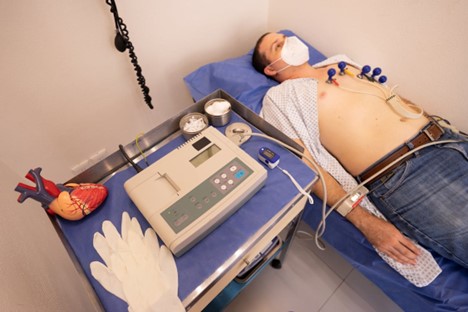Tummy Troubles? Here Are the Reasons You May Be in Pain
Stomach pain is an all-too-common experience that can range from mildly uncomfortable to downright debilitating. While occasional aches are usually harmless, recurring or severe stomach pain can signal underlying health issues. Let’s explore some of the most common reasons for tummy troubles and what you can do about them.
- Indigestion
Also known as dyspepsia, indigestion occurs when your stomach struggles to break down food. Symptoms include:
- bloating
- nausea, and a burning sensation in the upper abdomen. Overeating, consuming spicy or fatty foods, and stress are common triggers.
What to Do: Try eating smaller meals, avoid trigger foods, and consider over-the-counter antacids. If symptoms persist, consult a healthcare provider.
- Irritable Bowel Syndrome (IBS)
IBS is a chronic condition affecting the large intestine. It’s characterized by abdominal cramping, bloating, gas, diarrhea, or constipation.
What to Do: Keep a food diary to identify triggers, manage stress, and consult a doctor for tailored treatments, including diet adjustments or medications.
- Food Intolerances or Allergies
Lactose intolerance, gluten sensitivity, and other food intolerances can lead to stomach pain, bloating, and diarrhea. Food allergies may also cause more severe reactions, such as swelling or difficulty breathing.
What to Do: Eliminate suspected foods from your diet and consult a healthcare provider for testing and guidance.
- Gastroesophageal Reflux Disease (GERD)
GERD occurs when stomach acid flows back into the esophagus, causing heartburn, chest pain, and abdominal discomfort.
What to Do: Avoid lying down after meals, eat smaller portions, and reduce caffeine and alcohol intake. Medications like proton pump inhibitors (PPIs) may also help.
- Gallstones
Gallstones are hardened deposits of digestive fluid in the gallbladder. They can cause intense pain in the upper right abdomen, often triggered by fatty meals.
What to Do: If you suspect gallstones, seek medical attention. Treatment may include dietary changes or surgery in severe cases.
- Ulcers
Peptic ulcers are sores that develop on the stomach lining or small intestine, often due to H. pylori bacteria or prolonged use of NSAIDs like ibuprofen.
What to Do: Avoid irritants like spicy foods, alcohol, and NSAIDs. A doctor may prescribe antibiotics or acid-reducing medications.
- Constipation
A lack of fiber, dehydration, or inactivity can lead to constipation, causing discomfort and bloating.
What to Do: Increase your fiber intake, stay hydrated, and incorporate regular exercise into your routine.
- Appendicitis
Appendicitis is the inflammation of the appendix, often accompanied by sharp pain in the lower right abdomen, fever, and nausea. This is a medical emergency.
What to Do: Seek immediate medical attention if you suspect appendicitis. Surgery is typically required.
- Diverticulitis
Diverticulitis occurs when small pouches in the colon become inflamed or infected, causing pain, fever, and changes in bowel habits.
What to Do: A healthcare provider may recommend antibiotics, dietary changes, or in severe cases, surgery.
- Stress and Anxiety
The gut-brain connection means that stress and anxiety can manifest as stomach pain, nausea, or changes in bowel habits.
What to Do: Practice stress-reducing techniques like meditation, exercise, or yoga. Consider speaking with a therapist if symptoms persist.
When to See a Doctor
While mild stomach pain often resolves on its own, seek medical attention if you experience:
- Persistent or severe pain
- Blood in your stool or vomit
- Unexplained weight loss
- Difficulty swallowing
- Fever
Your healthcare provider can run tests to determine the root cause and recommend appropriate treatment.
See the full scientific article from Johns Hopkins Medicine.
By understanding potential causes and taking proactive steps, you can find relief and protect your long-term health. Listen to your body, and don’t hesitate to seek medical advice if needed.
Enhancing our daily routine with Florassist GI supplements can significantly contribute to our well-being. At Asher Longevity Institute, we provide access to this exceptional supplement. Florassist GI supports the growth of beneficial bacteria, optimizes digestion, and effectively eliminates harmful bacteria in the gut.




